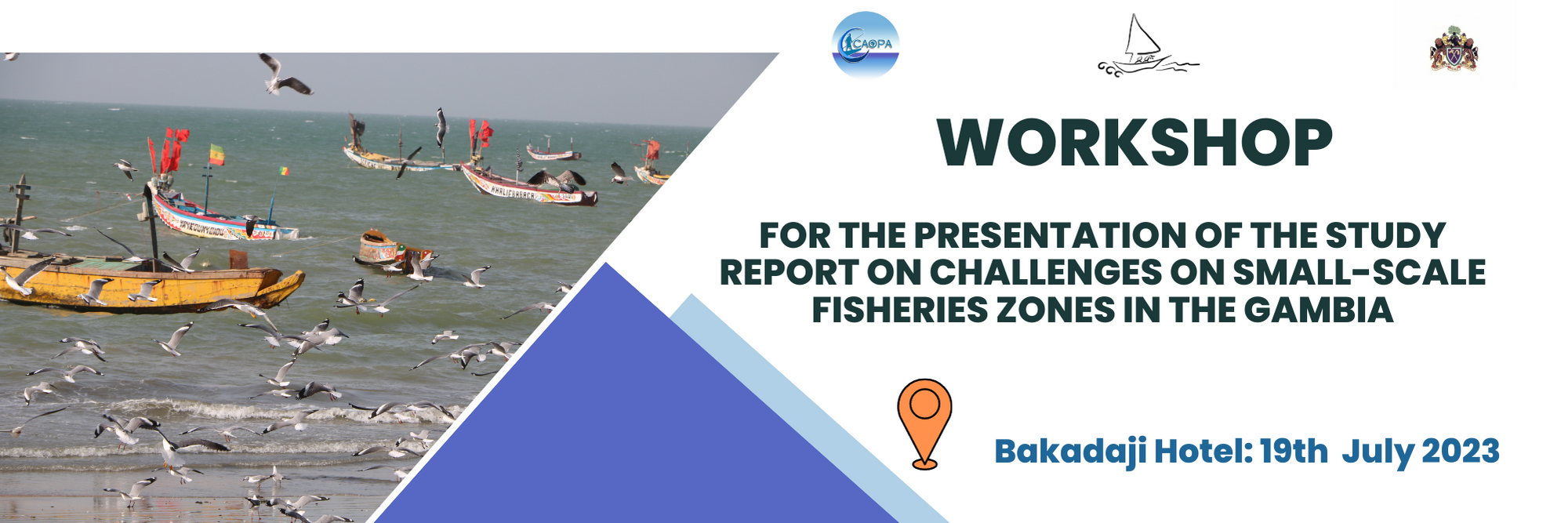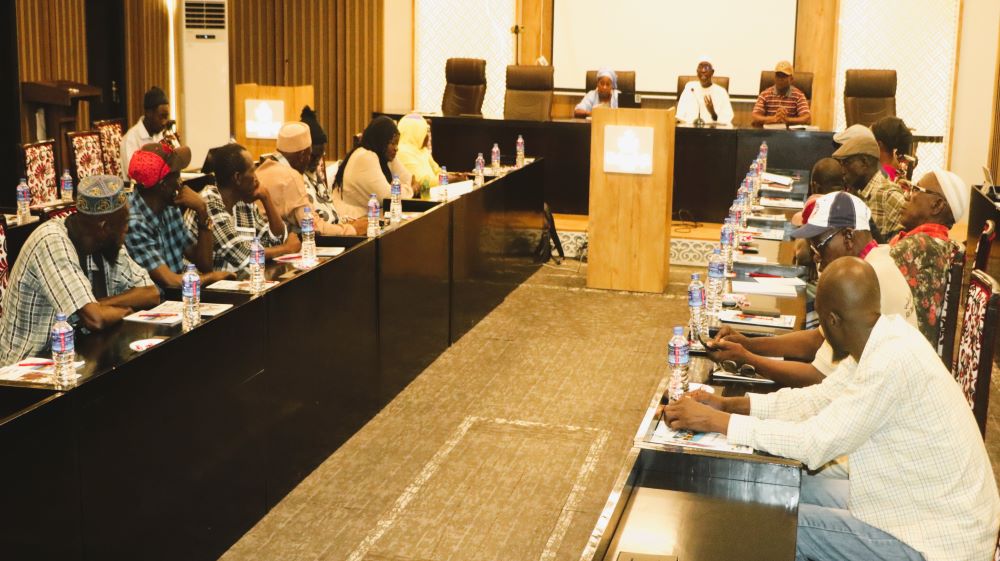A study commissioned by the African Confederation of Artisanal Fisheries Organizations (CAOPA) with the support of the Coalition for Fair Fisheries Agreements (CAPE) and the Swedish Society for Nature Conservation (SSNC) highlights the challenges facing the small-scale fishing zone in the Gambia.
The study was carried out as part of the celebrations for the International Year of Artisanal Fisheries and Aquaculture (IYAFA 2022), with the aim of analysing the regulations governing artisanal fishing in The Gambia, identifying gaps and proposing recommendations.
 It was written by Diénaba Bèye Traoré, an international consultant specialising in fisheries law and governance. The consultant’s methodology involved discussions with local fishermen and analysis of the relevant national, international and regional regulations.
It was written by Diénaba Bèye Traoré, an international consultant specialising in fisheries law and governance. The consultant’s methodology involved discussions with local fishermen and analysis of the relevant national, international and regional regulations.
Its importance lies in identifying gaps in current regulations and formulating recommendations to improve the situation of small-scale fishing in the Gambia.
To publicise this work, CAOPA, with the support of CAPE, organised a workshop in Banjul on 19 July 2023 to report on the study.
Dawda Foday Saine, Secretary General of CAOPA, presented the results of the study report. His presentation focused on the major challenges, the shortcomings identified, and the strategic recommendations for the small-scale fishing sector in The Gambia.
 Following the presentation, a lively exchange took place between the participants and Mr Saine, the report’s presenter. During these discussions, those involved in small-scale fishing had the opportunity to share their own difficulties encountered on a daily basis in their work as fishermen. This interaction made it easier to identify the responsibilities of each party in the search for solutions to overcome the obstacles and improve their activity.
Following the presentation, a lively exchange took place between the participants and Mr Saine, the report’s presenter. During these discussions, those involved in small-scale fishing had the opportunity to share their own difficulties encountered on a daily basis in their work as fishermen. This interaction made it easier to identify the responsibilities of each party in the search for solutions to overcome the obstacles and improve their activity.
They unanimously stressed the importance of dedicating a specific area to small-scale fishing, while ensuring compliance with the regulations in force.
This workshop was a crucial moment of sharing and collective awareness-raising, reinforcing the commitment to sustainable and prosperous small-scale fishing in The Gambia. The results of this study provide a solid basis for developing concrete measures to support the fishing community and protect our precious marine resources.
Summary
The Gambia has a zone reserved for artisanal fishermen in the first 12 nautical miles, as well as in the estuary of the River Gambia and its tributaries. However, new rules were introduced in 2019, banning fishing in the first nautical mile from the low-water mark and allowing fishing by trawlers and semi-industrial vessels of less than 50 GRT in the 7 nautical mile zone, provided that the catches are landed in The Gambia. Industrial vessels of less than 50 GRT are authorised to fish beyond 9 nautical miles.
The study highlights the international, regional and national regulations that apply to small-scale fishing in the Gambia. Although The Gambia has ratified several international conventions and agreements, there are still some gaps in national legislation.
Gaps and recommendations
The problems identified include a lack of surveillance, conflicts between artisanal fishermen and industrial players, unclear regulations on fishing zones and difficulties in registering artisanal fishing boats.
To remedy these problems, the report makes a number of recommendations. In particular, it advocates the urgent updating of the national legal framework on fishing, by adhering to the relevant international instruments and incorporating them into national legislation. It also recommends the creation of commissions to manage licences and boardings, the translation of regulations into languages accessible to fishing communities, and the promotion of specific regulations on small-scale fishing at regional level.
 For the President of CAOPA, Gaoussou Gueye, “it is essential to take appropriate measures to strengthen governance and promote sustainable artisanal fishing in order to guarantee the preservation of marine resources and support fishing communities in their livelihoods”.
For the President of CAOPA, Gaoussou Gueye, “it is essential to take appropriate measures to strengthen governance and promote sustainable artisanal fishing in order to guarantee the preservation of marine resources and support fishing communities in their livelihoods”.
Ultimately, the aim is to strengthen the governance of small-scale fishing in the Gambia, resolve conflicts, improve monitoring and control, and professionalise the trades linked to small-scale fisheries in order to guarantee sustainable management of marine resources and contribute to food security and poverty reduction in the country.
A series of studies on the challenges facing artisanal fishing zones have been commissioned in Sierra Leone, Ghana, Madagascar, Mauritania, the Republic of Guinea, Senegal and the Gambia.
Aliou DIALLO, from Banjul


